On October 16-18 the Global Innovation Forum (GIF) will be held in Armenia for the second time, this time during the Aurora Forum. GIF aims to explore the impact of Artificial Intelligence (AI) on science and society from the point of view of science and technology.
Before the forum, Mediamax talked to Armen Orujyan, Chief Executive Officer of FAST.
Last year, the Global Innovation Forum gathered significant figures in the science community. If we discuss the drawbacks, what lessons did you learn and what can we expect this year?
This forum has two distinct attributes. The first is the exchange of knowledge; what we are attempting to do is to demonstrate that top global experts can come together to discuss and explore cutting-edge science in Armenia. What is taking place in this scientific universe? And the focus is, again, on artificial intelligence, on how AI impacts science itself and how AI impacts society.
Here we're bringing top notch scientists and innovation experts from the United States, China, Israel, Japan, Indonesia, Rwanda, Togo, etc. We have sought after specialists from Facebook AI, Google Brain, Google DeepMind, Microsoft, Stanford, Harvard, UC Berkeley, MIT. And we're exchanging information, what happens in science and deep tech, but also how that is also being deployed in society through various commercial products.
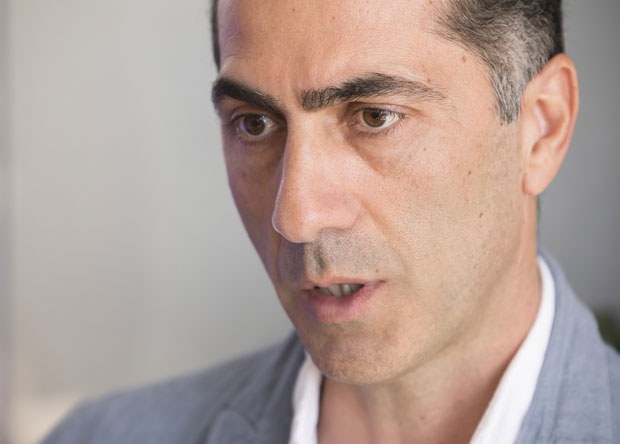 Armen Orujyan
Armen OrujyanPhoto: Mediamax
Another thing that is different this year, we’ll have a broader audience.
FAST was created in 2017 and you were saying that you would like to create “a holistic ecosystem, which will move forward technological innovation and scientific progress”. What challenges does the foundation face? At which stage is the tech innovation?
I joined Ruben Vardanyan, Noubar Afeyan, Artur Alaverdyan, Ayb and Luys Foundations to build on what they have been doing the past 20 years. Fortunately, we are not the only ones, there are a number of other very successful and impactful initiatives out there. We are simply building a brick at a time, moving forward a step at a time. At some point we will get up and begin running. It is not that day just yet for us. We still have loads of learning to do.
We've already launched plenty of initiatives that would have immediate short-term impact. Understanding how we can make a systemic impact is very important for us. When I first took on this challenge, I said from the beginning - our difficulties will begin from the second year on, because that's where we're going to be the quietest, as we will be working.
Now it's the quiet season, and we have a number of very interesting stuff that's coming out; a number of them we will unveil during the Forum and a few others by the end of the year.
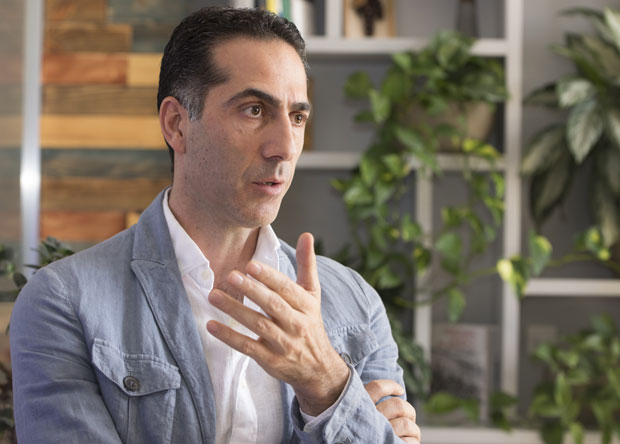 Armen Orujyan
Armen OrujyanPhoto: Mediamax
It's also very important to look at where Armenia belongs within the global constituency amongst its peers, and also who's up here, and who's not, who's the leader, whom do we want to learn from, whom we can teach. Everything is interconnected. Success here is reliant on what happens in the world, not only what's happening within Armenia.
In February 2018 FAST launched its “Angels Network”. How it’s doing?
Actually “Angels Network” is more active now than in the past. We started with 18 angels, and now we're up to 25 angels. The commitment has grown; angels already have invested in startups.
We've created a change where young entrepreneurs and entrepreneurial teams can come into our facility, to our creative campus, run through programs that we've designed with them. And then, they also get funded from an entity that we've also created and launched. We're very satisfied with this.
We've also added three women to our “Angels Network”. We want that number to grow, and we're actively seeking more women to join the network.
When announcing the scholarships in 2017 you’ve said that “FAST plays the role of the accelerator”. Is that accelerator succeeding?
Naturally, we will not take direct credit, but I think there should be some credit thanks to the other organizations as well. You hear a lot more conversations about data science, artificial intelligence from the universities, students, investors, media. We've played a significant role in trying to push this forward because we do believe data science is an anchor of a scientific discipline that could enable Armenia to accelerate its growth in innovation space. I think we've added; we've contributed tremendously, and we've been directly involved.
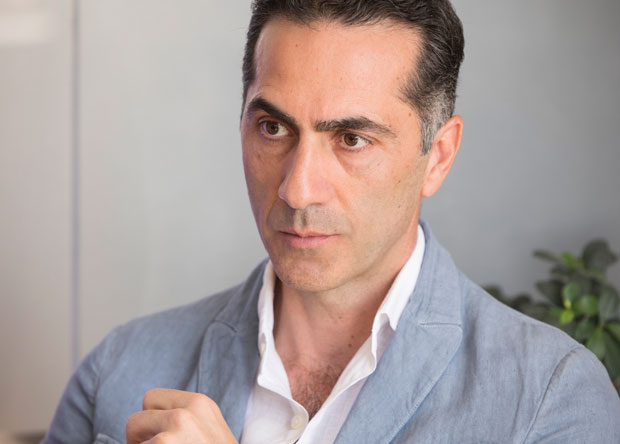 Armen Orujyan
Armen OrujyanPhoto: Mediamax
Some of these findings could be commercialized fairly soon. We've taken note of that and how that works. Now we are opening the second track of the Advanced Solutions Center - a life sciences track. We've just recruited and sent three biotechnologists from Armenia to Boston to our partners at Flagship Pioneering for our researchers to go through a twelve-week training program before they come back to Armenia to continue what they've taken away from Boston.
There is a rapid growth of interest in training AI skills among military recruits of Ministry of Defense, and we've done that this entire year. We're very pleased that we have at least helped popularize this particular scientific discipline.
In September 2018, at a meeting with the Armenian Defense Minister Davit Tonoyan you’ve said that FAST and the Ministry want to create a “cycle of talent”. Can you please a little more about cooperation with the MoD?
We had one cohort that graduated extremely successfully with us several months ago. Now we're working for the next phase with Ministry of Defense to enhance and enlarge our collaboration in educating more thoroughly in some of the major scientific areas that are also important for military sector: artificial intelligence, cyber security.
Jointly with the High-Tech Cybersecurity Foundation, we are partnering with the Ministry of Defense in the scope of a new much larger and more impactful program that the Ministry is creating: Unit 1991. The aim of the program is to provide opportunities for continuing education, development, and advancement of professional skills for inductees in the Armed Forces of Armenia. Unit 1991 is envisioned to implement advanced R&D projects.
At which stage is “Travel Grant for Collaborative Research 2018-2019”?
We have issued 21 travel grants for both Armenian-based researchers to travel abroad to conduct collaborative research with their colleagues in a number of world leading universities and labs, and international researchers to visit their partners in Armenia.
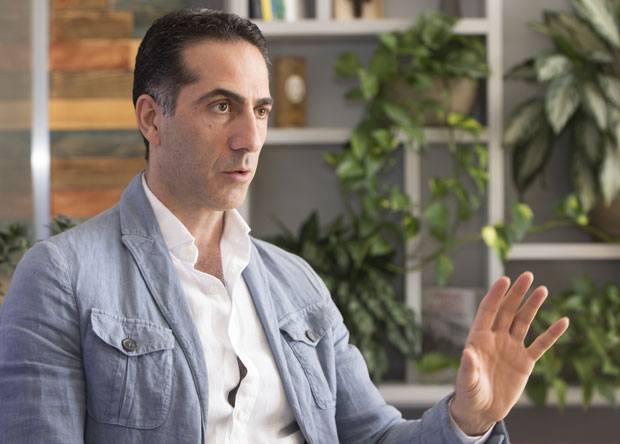 Armen Orujyan
Armen OrujyanPhoto: Mediamax
Now our team is working on the next phase and we'll probably make an announcement during the upcoming Global Innovation Forum. It is going to serve as a big platform for a number of announcements - a new granting scheme will be announced on the sidelines of the Global Innovation Forum that will focus on teams of scientists.
Sometimes we get fingers pointed at us. Perhaps FAST isn't doing enough. It's easy to judge. The easiest thing to do is criticize. It's normal; it happens in all domains of a person's world, but something profound things take time. We - our team and our founders - know what we're doing.
Lusin Mkrtchian talked to Armen Orujyan
Photos by Emin Aristakesyan
















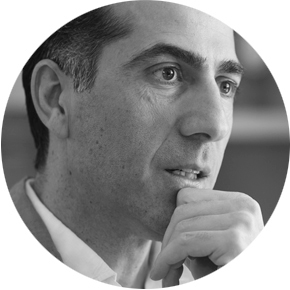
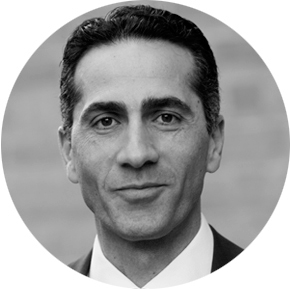
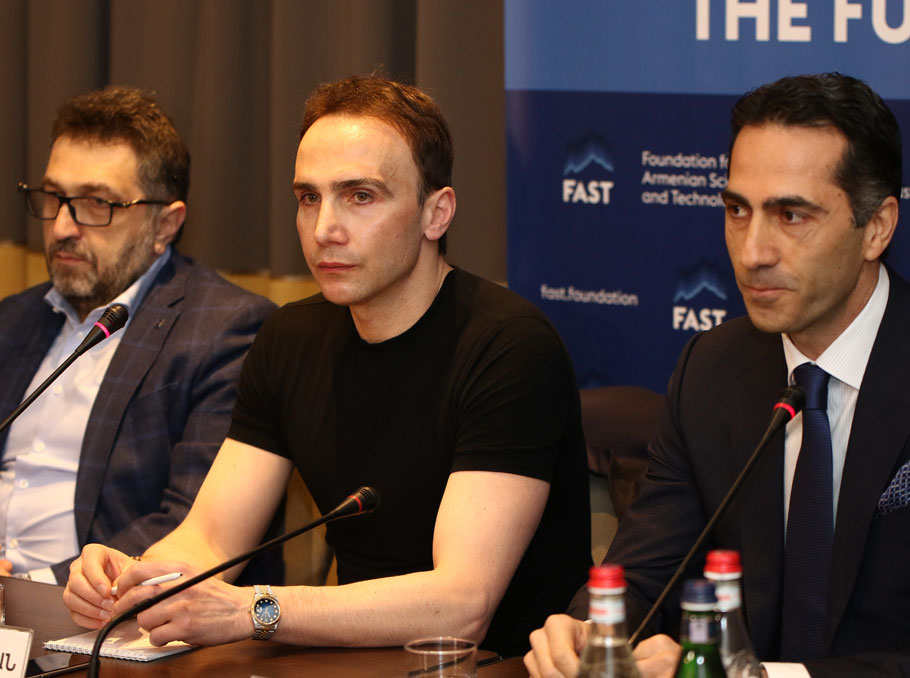
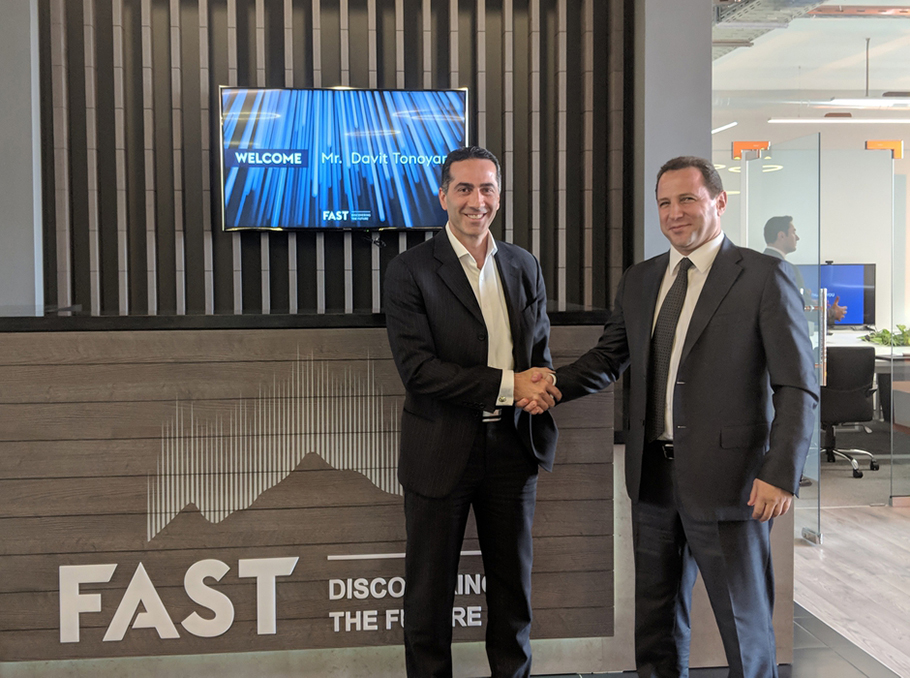
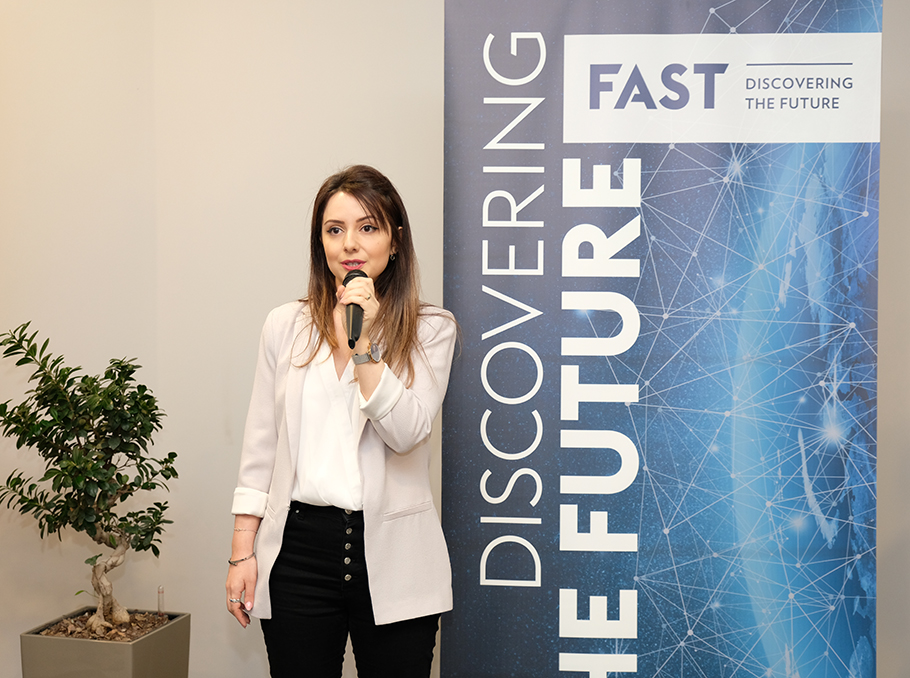



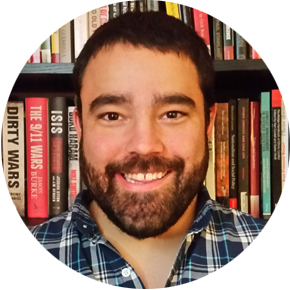






Comments
Dear visitors, You can place your opinion on the material using your Facebook account. Please, be polite and follow our simple rules: you are not allowed to make off - topic comments, place advertisements, use abusive and filthy language. The editorial staff reserves the right to moderate and delete comments in case of breach of the rules.